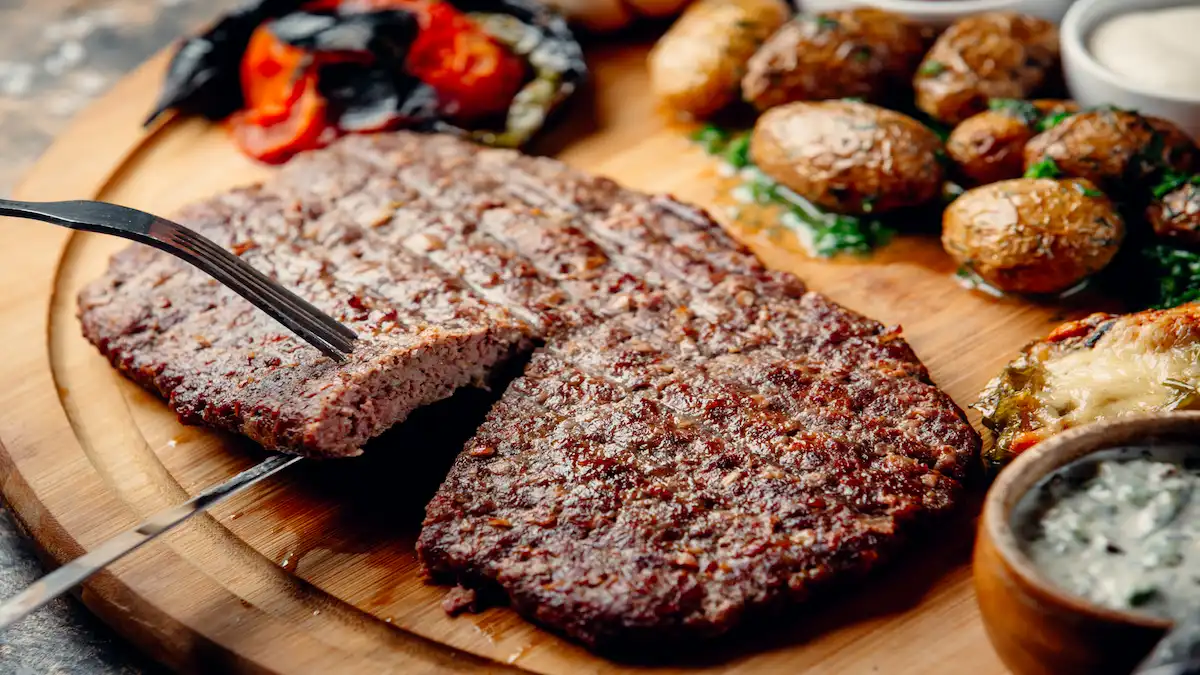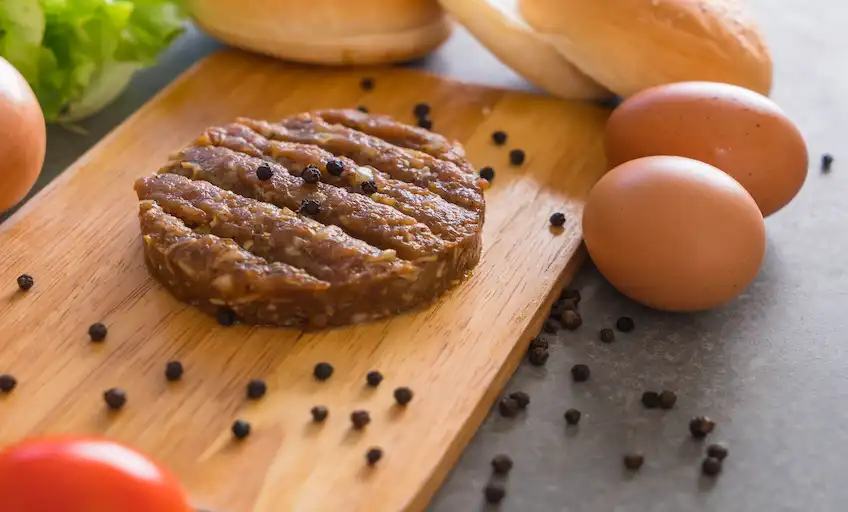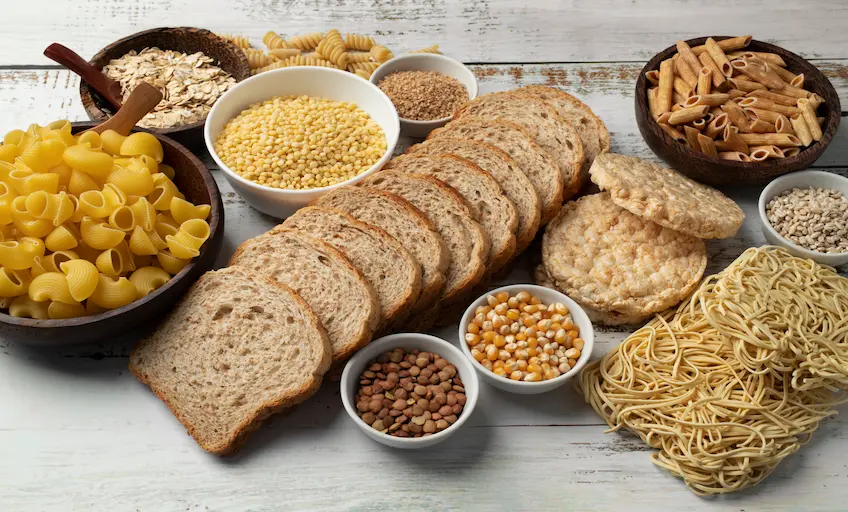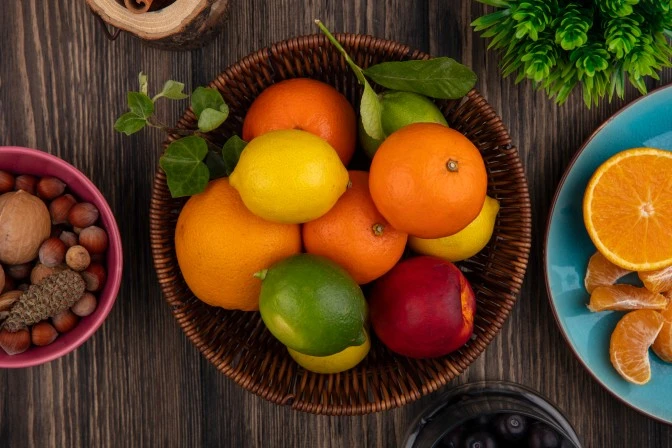Craving the taste of meat without the guilt? Mock meat is sizzling its way into kitchens and conversations alike—offering all the flavor, none of the fallout. Whether you’re a curious foodie, a flexitarian, or a lifelong vegan, it’s time to explore how plant-based meat is changing the way we eat, cook, and care for the planet.
Understanding mock meat meaning

Mock meat refers to alternative meat options. It can be made from plant-based proteins to mimic the taste, color, and texture of real meat. Ingredients such as soybean, wheat protein, tempeh, and pea protein are processed into kebabs and other meat-like products using fungi-based yeast to achieve the desired texture. Other alternatives include preparing vegetable substitutes, such as jackfruit and eggplant, with a spice blend that mimics the flavor of meat dishes.
Types of mock meat
From soy-based classics to cutting-edge lab-grown alternatives, discover the delicious diversity of plant-powered proteins revolutionizing plates worldwide.
- Tofu, made from soybeans, is one of the oldest and most versatile meat substitutes. Its mild flavor and ability to soak up marinades make it perfect for stir-fries, curries, or grilling.
- Tempeh is a fermented soybean product characterized by its firm texture and nutty flavor. It is great for sandwiches, stir-fries, and protein-packed bowls.
- Seitan (wheat meat) is made from gluten; it has a chewy, meat-like texture that closely mimics chicken or beef. It is ideal for grilling, roasting, or sautéing.
- Jackfruit is a tropical fruit with a stringy texture that mimics pulled pork. It is often used in tacos, burgers, or BBQ-style dishes.
- Textured Vegetable Protein (TVP) is made from defatted soy flour. TVP is a dehydrated product that turns meaty when rehydrated. It is perfect for meat sauces, chili, and tacos.
- Mycoprotein (e.g., Quorn) is derived from fungi and offers a meat-like texture, often found in ready-made mock meat products such as nuggets or patties.
- Lab-grown or cultivated meat, though technically not plant-based, is grown from real animal cells without slaughter—an emerging category for those seeking an ethical alternative to meat.
- Pea protein-based meats (e.g., Beyond Meat) are high-protein, plant-based products designed to mimic the appearance, taste, and texture of real meat—perfect for grilling and as a healthier alternative to fast food.
Mock meat vs real meat
As the plant-based movement gains momentum, more people are considering the advantages and disadvantages of mock meat compared to traditional meat. Here’s how they compare across key areas:
| Key areas | Real meat | Mock meat |
| Ingredients and source | Comes from animals—chicken, beef, pork, etc | Made from plants (soy, pea protein, mushrooms, etc.) or lab-cultured cells |
| Nutrition | Naturally high in protein, iron, vitamin B12, and other nutrients, but may also contain cholesterol and saturated fats | Often high in protein and fiber, but some versions can be ultra-processed and may need fortification for nutrients like B12 and iron |
| Health impact | Associated with heart disease and cancer risks when consumed in excess, especially red and processed meats | Generally lower in cholesterol and saturated fat, but nutrition depends on the brand and ingredients |
| Taste and texture | Rich, savory, and naturally meaty in texture | Modern brands replicate taste and texture well, but some still notice a difference |
| Environmental impact | High carbon footprint, water usage, and land requirements | Significantly lower environmental impact—less water, land, and emissions |
| Ethics and animal welfare | Involves animal farming and slaughter | Cruelty-free and aligns with vegan or vegetarian values |
| Cost and availability | Readily available and often cheaper | Prices are dropping as popularity grows, but are still premium in many markets |
Mock meat vs lab-grown meat
Another alternative to meat is lab-grown meat, which is produced using cells from animals. Cells are collected from a specific body part of the animal and placed in an environment that supports their growth and development. The product that is created is similar in texture and consistency to the meat of a live animal. While the method checks the killing of animals, its meat is not considered vegan. This is different from mock meat, which is made from vegetarian ingredients.
Is mock meat healthy?
Mock meat can be a healthy alternative to traditional meat, but its nutritional value depends mainly on how it’s made.
Pros of mock meat:
- Lower in saturated fat and cholesterol
- High in plant-based protein and fiber
- Promotes heart health and weight management
- Cruelty-free and suitable for vegetarians and vegans
- Helps reduce red and processed meat intake
- Environmentally sustainable
Cons of mock meat:
- Can be highly processed
- May contain high levels of sodium and additives
- Often lacks essential nutrients like B12, iron, and zinc
- Not all options are based on whole foods
- Some products include allergens like soy or gluten
Environmental benefits of choosing mock meat
Switching to mock meat isn’t just good for your health—it’s also a win for the planet. Producing plant-based meat alternatives uses significantly less water, land, and energy compared to raising livestock. It also produces far fewer greenhouse gases, helping to fight climate change. Traditional animal agriculture is a significant contributor to deforestation, water pollution, and biodiversity loss, whereas mock meat production mitigates these harmful effects. By choosing mock meat occasionally, consumers can reduce their environmental impact, conserve natural resources, and support a more sustainable and ethical food system.
A taste of the future

Mock meat is more than just a food trend—it’s a decisive step toward healthier living, ethical eating, and a more sustainable planet. With a growing variety of tasty, protein-rich options on the market, plant-based meats offer a delicious way to reduce your reliance on animal products without sacrificing flavor or satisfaction. Giving mock meat a try could be one of the most impactful and enjoyable changes you make to your plate.
FAQs on mock meat
Got questions about mock meat? Here are some of the most frequently asked questions to help you better understand this plant-powered protein.
1. What is mock meat, and how is it made?
Mock meat, also known as plant-based or meat alternative, is a food product designed to mimic the taste, texture, and appearance of real meat, without using any animal ingredients. It’s typically made from plant proteins, such as soy, peas, wheat gluten, or legumes, and combined with natural flavors, oils, and binders to recreate a meat-like experience. Some versions are made from whole foods, such as jackfruit or mushrooms, while others are more processed to achieve a realistic look and sizzle.
2. Does mock meat taste exactly like real meat?
Mock meat has come a long way in replicating the flavor and texture of real meat, and many modern products impressively replicate these qualities, especially those made with advanced flavoring and cooking techniques. While some people find the taste nearly identical, others may still notice subtle differences in texture or aftertaste. That said, the gap is narrowing fast, and for many, the taste is satisfying enough to make the switch or enjoy it as a regular alternative.
3. Is mock meat vegetarian or vegan?
Most mock meats are vegetarian, and many are fully vegan; however, not all are. While plant-based mock meats typically avoid animal products, some may contain ingredients like eggs, dairy, or honey, especially in older or processed versions. It’s always best to check the label to confirm if a product is 100% vegan.
4. How is mock meat different from tofu or paneer?
While tofu and paneer are often used as protein sources in vegetarian meals, they aren’t designed to mimic the taste or texture of meat. Mock meat, on the other hand, is specifically crafted to resemble real meat in flavor, appearance, and mouthfeel. Tofu is made from soybeans and has a soft, spongy texture, whereas paneer is a fresh dairy cheese commonly found in Indian cuisine. Mock meat typically includes plant proteins, flavor enhancers, and binders to create a meat-like experience, making it a closer substitute for those craving traditional meat dishes without the animal ingredients.
5. Is mock meat safe for kids and elderly people?
Yes, mock meat is generally safe for both kids and elderly people when consumed as part of a balanced diet. It can be a good source of plant-based protein and may help reduce intake of saturated fats found in red or processed meats. However, some mock meats can be high in sodium or additives, so it’s important to choose cleaner, less processed options—especially for individuals with dietary sensitivities or health conditions.
Key Takeaways
- Bubble tea typically features a tea base combined with milk or fruit flavors and is renowned for its chewy tapioca pearls (or boba) that settle at the bottom of the cup.
- It is high in antioxidants, may aid digestion, and support bone health.
- To create a healthier version, consider changing toppings, reducing sugar intake, and adjusting portion sizes.
Stay tuned to the Activ Living Community. Keep up to date with the latest health tips and trends through expert videos, podcasts, articles, and much more on nutrition, fitness, mindfulness, and lifestyle conditions like Asthma, Blood Pressure, Cholesterol, and Diabetes. Activ Living ke saath sahi sehat ki shuruat ABHI karo.
You may also be interested in the following blogs:
Popular Searches
How to lower blood pressure | Fruits good for liver | Unhealthy foods | Ragi Benefits | Basal Metabolic Rate | Acupressure points for High Blood Pressure | Ayurvedic medicine for blood pressure | How to control cholesterol at home | Homeopathy for Asthma | Biological Age | Home remedies for TB | Natural beta blockers | Negative effects of internet | Types of walking | Blood pressure calculator | Blood sugar calculator | BMI Calculator





 1800-270-7000
1800-270-7000







